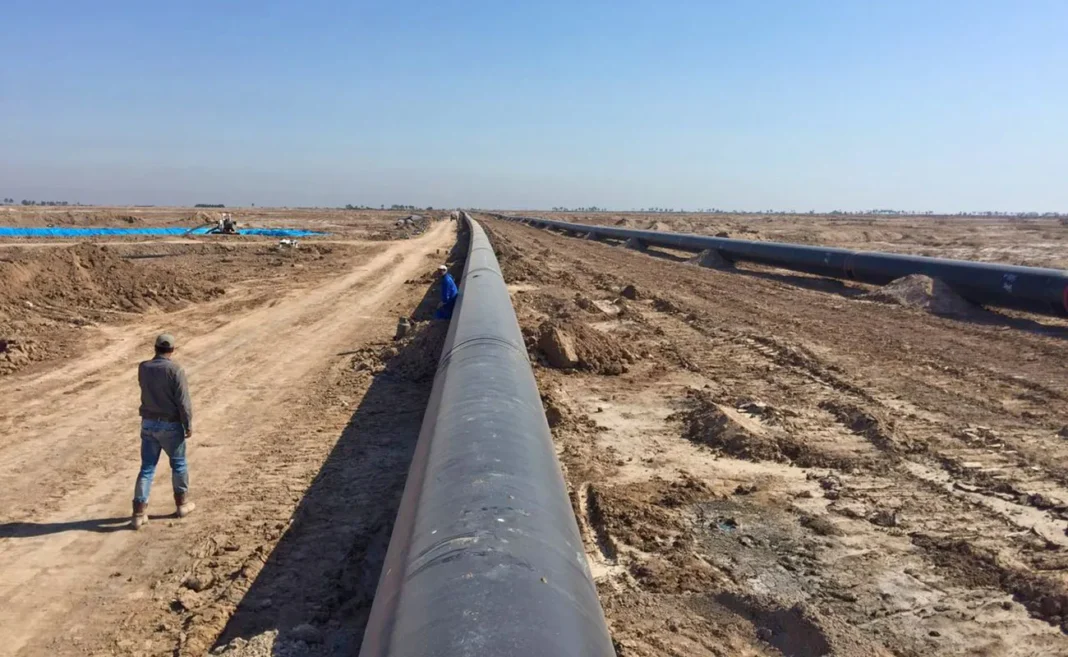Iraq oil pipeline to Oman project is moving forward as Baghdad seeks to expand its crude export routes. The State Oil Marketing Company (SOMO) confirmed the plan during recent discussions with Muscat.
SOMO Director General Ali Nizar explained that Iraq and Oman reached a preliminary deal. The project will begin with storage tanks at Oman’s Duqm port. These tanks will hold 10 million barrels of crude oil. He also said the capacity could increase in the future.
Before the pipeline is ready, Iraq will send crude by tanker to Oman. This step ensures exports continue without delay. Once the pipeline is complete, exports will flow more smoothly. The exact route of the Iraq oil pipeline to Oman project remains under review. Officials are debating two options: an overland line through neighboring states or a Gulf route from Basra to Oman’s coast.
Earlier this month, Iraq and Oman signed two agreements and 24 memoranda of understanding. These deals covered energy and other areas of cooperation. Prime Minister Mohammed Shia al-Sudani signed them during his official visit to Muscat. During the visit, he also met with Sultan Haitham bin Tariq Al Said to discuss stronger ties.
The Iraq oil pipeline to Oman project would give Baghdad more flexibility. Currently, Iraq depends heavily on routes through Turkey. New export paths reduce risks and improve energy security. At the same time, they strengthen regional partnerships with Gulf states.
Energy analysts believe the Duqm port tanks will play a major role. With storage in place, Iraq can balance supply, manage demand changes, and secure a stronger presence in Asian markets. Tanker shipments will begin soon, giving the project an immediate start while pipeline planning continues.
The Iraq oil pipeline to Oman project highlights Iraq’s strategy for long-term growth. By diversifying export routes, the country positions itself as a more stable and reliable energy supplier. This plan also deepens cooperation with Oman, which seeks to expand its own role as a regional energy hub.


